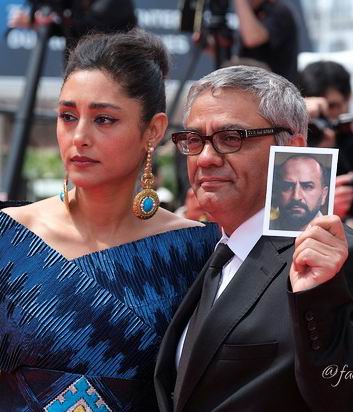|
|
| Welcome to Online Film Home! |
|---|
|
|
|

Sternberg, Josef von |
Birth name
Jonas Sternberg
Date of birth
29 May 1894, Vienna, Austria-Hungary
Josef von Sternberg (May 29, 1894 - December 22, 1969)
Josef von Sternberg (born Jonas Sternberg; May 29, 1894 – December 22, 1969) was an Austrian-born filmmaker whose career successfully spanned the transition from the silent to the sound era, during which he worked with most of the major Hollywood studios.
He is best known for his film collaboration with actress Marlene Dietrich in the 1930s, including the highly regarded Paramount/UFA production, The Blue Angel (1930).
Sternberg's finest works are noteworthy for their striking pictorial compositions, dense décor, chiaroscuro illumination, and relentless camera motion, endowing the scenes with emotional intensity.
He is also credited with having initiated the gangster film genre with his silent era movie Underworld (1927). Sternberg's themes typically offer the spectacle of an individual's desperate struggle to maintain their personal integrity as they sacrifice themselves for lust or love.
He was nominated for the Academy Award for Best Director for Morocco (1930) and Shanghai Express (1932).
“I care nothing about the story, only how it is photographed and presented.”
“Shadow conceals—light reveals. To know what to reveal and what to conceal, and in what degrees to do this, is all there is to art.”
Josef von Sternberg split his childhood between Vienna and New York City.
His father, a former soldier in the Austro-Hungarian army, could not support his family in either city; Sternberg remembered him only as "an enormously strong man who often used his strength on me."
Forced by poverty to drop out of high school, von Sternberg worked for a time in a Manhattan store that sold ribbons and lace to hat makers.
A chance meeting in Prospect Park, Brooklyn, led to a new career in the cleaning and repair of movie prints. This job provided an entrée to the film production industry, then flourishing in Fort Lee, New Jersey.
As an apprentice film-maker, from around 1916 to the early 1920s, von Sternberg developed a lasting contempt for most of the directors and producers he worked for (an exception was Emile Chautard, who acted in some of Sternberg's films of the 1930s), and was sure that he could improve on their products.
Staked to a few thousand dollars -- even then an absurdly small budget -- von Sternberg proved himself right with The Salvation Hunters (1925), which became a critical and financial hit. For the next couple of years he seesawed between acclaim and oblivion, sometimes on the same project (for instance, he received the rare honor of directing a film for nm0000122, but it was shelved after only one showing and later disappeared forever).
His commercial breakthrough was Det mørke Chicago (1927), a prototypical Hollywood gangster film; behind the scenes, von Sternberg successfully battled Ben Hecht, the writer, for creative control. With Hans sidste kommando (1928), starring the equally strong-willed Emil Jannings, von Sternberg began a period of almost a decade as one of the most celebrated artists of world cinema. Both his film career and his personal life were transformed in the making of Den blå engel (1930).
Chosen by Jannings and producer Erich Pommer to make Germany's first major sound picture, von Sternberg gambled by casting nm0000017, then obscure, as Lola Lola, the night-club dancer who leads Jannings' character into depravity.
The von Sternberg-Dietrich story, both on-screen (he directed her in six more movies) and off (he became one of her legions of lovers, more in love with her than most) is a staple of film histories.
His films of the mid-'30s are among the most visionary ever made in Hollywood, but in spite of their visual sumptuousness, contemporary audiences found them dramatically inert. The films' mediocre box office and a falling-out with Ernst Lubitsch, then head of production at Paramount Pictures (Sternberg's employer), meant that after Djævelen er en kvinde (1935) he would never again have the control he needed to express himself fully. In his sardonic autobiography, he more or less completely disowned all of his subsequent films.
In spite (or perhaps because) of his truncated career and bitter personality, von Sternberg remains a hero to many critics and filmmakers. His best films exemplify the proposition, as he put it, that in any worthwhile film the director is "the determining influence, and the only influence, despotically exercised or not, which accounts for the worth of what is seen on the screen." - IMDb Mini Biography By: David S. Smith
Filmography
Silent films
The Salvation Hunters (1925)
The Exquisite Sinner (1926, lost)
A Woman of the Sea (1926, also known as The Sea Gull or Sea Gulls or The Woman who loved once, lost)
Underworld (1927)
The Last Command (1928)
The Dragnet (1928, lost)
The Docks of New York (1928)
The Case of Lena Smith (1929, lost)
Sound films
Thunderbolt (1929)
The Blue Angel (1930)
Morocco (1930)
Dishonored (1931)
An American Tragedy (1931)
Shanghai Express (1932)
Blonde Venus (1932)
The Scarlet Empress (1934)
The Devil is a Woman (1935)
Crime and Punishment (1935)
The King Steps Out (1936)
Sergeant Madden (1939)
The Shanghai Gesture (1941)
The Town (1943, short film)
Macao (1952)
Anatahan (1953 also known as The Saga of Anatahan)
Jet Pilot (1957)
Selected filmography of
Sternberg, Josef von
1930
The Blue Angel | Der blaue Engel (1930)
|
|
|
|

Cannes 2024 |
Choose an item to go there!
|
| |
|
|

